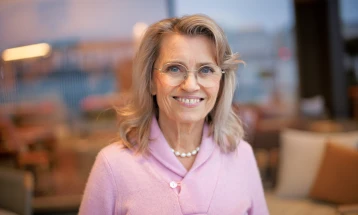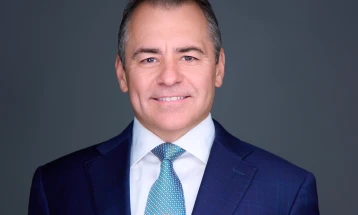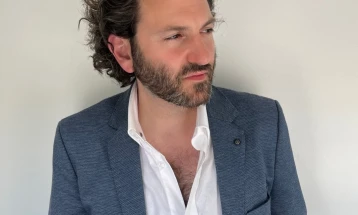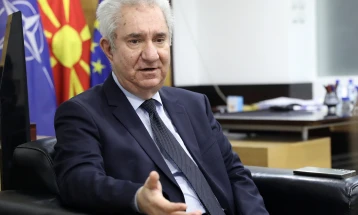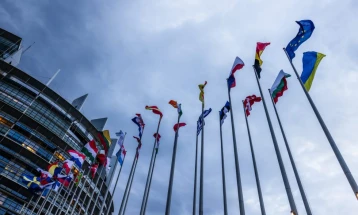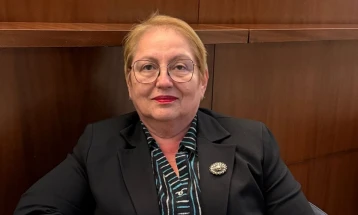Europe Day: EU-nifying visions in challenging times
- In light of Europe Day, celebrated on May 9, EU member states – and those with accession ambitions – reflected on the bloc’s achievements and future plans for the union. The day promoting peace and unity across the continent coincides with Russia, among other countries, celebrating the victory over Nazi Germany in 1945.
- Post By Magdalena Reed
- 12:09, 14 May, 2023
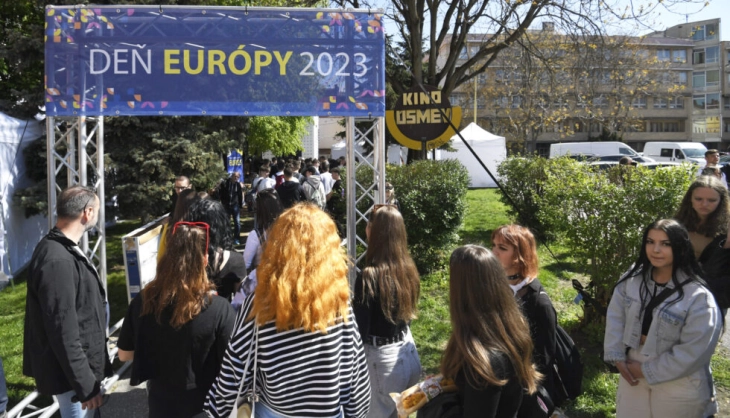
Brussels, 14 May 2023
by AFP, ANSA, EFE, FENA, MIA, STA, Tanjug
In light of Europe Day, celebrated on May 9, EU member states – and those with accession ambitions – reflected on the bloc’s achievements and future plans for the union. The day promoting peace and unity across the continent coincides with Russia, among other countries, celebrating the victory over Nazi Germany in 1945.
The war in Ukraine, trade and business disputes with China and the United States, inflation – the EU is confronted with challenges on many sides. Leaders of the European Union marked Europe Day and discussed current topics on the bloc’s agenda.
While on Tuesday Germany’s Chancellor Olaf Scholz called for more global cooperation on equal terms instead of striving to turn the European Union into a third “world power” alongside the US and China, EU Commission President Ursula von der Leyen showed solidarity with Ukraine in Kiev.
European Commissioner for Crisis Management Janez Lenarčič spoke in Slovenia about the EU’s achievements regarding the single market, the Schengen zone, the Euro and the Erasmus programme, but stated that EU pioneer Robert Schuman’s vision has not been realised yet. “Europe has not reached peace,” the commissioner said.
The 9th of May turned Europe Day in Ukraine
European Commission President Ursula von der Leyen sang Kiev’s counter-song to Russia’s Victory Day when she visited the Ukrainian capital on the occasion of Ukraine’s first-ever celebration of Europe Day. “It is here that the values we hold dear are defended every day,” the European Commission President emphasised. But it was not only ideas and principles that were discussed between von der Leyen and Ukrainian President Volodymyr Zelensky.
Standing alongside the European Commission president, Zelensky urged the EU to speed up ammunition deliveries, lift “unacceptable” restrictions on Ukrainian grain exports and begin talks on Ukraine’s EU accession. “The time has come to remove the artificial political uncertainty in the relations between Ukraine and the EU,” Zelensky told journalists during a joint press conference.
After the talks in Kiev, von der Leyen made it clear that she thinks Ukraine is deeply serious about pursuing its EU ambitions. “I come out from this visit more impressed than ever by the determination of the Ukrainians, despite the huge challenges they face. We must continue to support them,” she told an AFP journalist acting as a pool reporter for the European Newsroom.
Von der Leyen is set to brief EU member state leaders next month and hand them a report in October on Ukraine’s progress in democratic and anti-corruption reform. At that point, the members will have to decide whether to launch formal EU accession talks.
There is much good will for Ukraine in EU capitals, but also scepticism whether a country with such a troubled recent history will be in shape to begin formal accession talks this year. Brussels estimates that once they begin, the talks could take six to 10 years, while Kiev is more optimistic.
EU27+: Promises, unity and fair enlargement?
“We said to the countries of the Western Balkans, Ukraine and Moldova: you belong to us, we want you to become members of the European Union,” said German Chancellor Olaf Scholz during his speech in the European Parliament on May 9. He added that this was not about altruism, “but about credibility and economic interest”, as well as the effort to ensure peace in Europe, especially after the turning point represented by Russia’s attack on Ukraine.
Scholz added that a fair enlargement policy meant fulfilling the promises that had been given to all the countries of the Western Balkans, which were promised the European perspective 20 years ago. “A geopolitical Europe must keep its promises to its neighbours,” he said.
Spain, who takes over the rotating presidency of the EU on 1 July, marked Europe Day with events across the country. The Spanish government aims to strengthen the EU’s relations with Latin America as, according to Spanish diplomats, Europe needs to open up to “reliable partners” in order to guarantee supply chains at a delicate time for the EU in geostrategic terms.
Stabilisation in the Balkans and countering both Russian and Chinese influence
European Union leaders had already vowed to strengthen ties with the Western Balkans, a drive reinvigorated by Russia’s war on Ukraine, during an EU-Western Balkans Summit in December 2022. The war has underlined the importance for the EU to bring the Balkans into its orbit, to stabilise the region and counter the influence of both Russia and China.
Spanish diplomacy has also made rapprochement with the Western Balkans one of its priorities, as the country’s Foreign Affairs Minister José Manuel Albares outlined during a tour of Serbia, Bosnia-Herzegovina, Albania and North Macedonia last month. Slovenian President Nataša Pirc Musar also stated that she believed in more Europe and was promoting it in the Western Balkans, as she believed this would bring more stability to the region.
Meanwhile, the celebrations of May 9 showed that the two entities of Bosnia and Herzegovina have a vastly different outlook on the country’s future with regard to politics and the pending EU membership: While the Federation of Bosnia and Herzegovina celebrated Europe Day with numerous cultural events, the Republika Srpska celebrated the day as Victory over Fascism Day – like Russia.
The president of the Institute for Democracy Societas Civilis Skopje, Marko Troshanovski, and Andreja Stojkovski, Executive Director of North Macedonia's independent think tank PRESPA Institute, have a more critical outlook on the current enlargement process. “Despite the urgency of the moment with the war in Ukraine, which was expected to speed up the process a year ago, there have been no substantial shifts in terms of the enlargement. The EU does not have a comprehensive vision for the enlargement, and there is neither interest among the member states in the process nor in defining any deadlines for a new enlargement,” they told North Macedonia's Media Information Agency (MIA) on May 9.
Photo: TASR/Frantiek Iván

